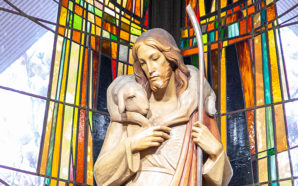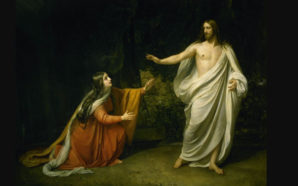The Growing in Holiness article series shares the stories of Catholics in the Diocese of Parramatta who are striving to grow in holiness through the means provided by the heritage of the Catholic Church.
The Catechism of the Catholic Church states in paragraph 2013: “All Christians in any state or walk of life are called to the fullness of Christian life and to the perfection of charity.” (LG 40 § 2) All are called to holiness: “Be perfect, as your heavenly Father is perfect.” (Mt 5:48)
Stars are poor books, and oftentimes do miss:
This book of stars lights to eternal bliss.
– George Herbert, The Holy Scriptures II
Thérèse Horsfall is a counter-cultural young woman. She is devoted to literature – both sacred and secular, when not Irish dancing or singing in the schola of St Patrick’s Cathedral, Parramatta. Thérèse also delves deeply into the Catholic faith’s treasury of wisdom.
Cheerful and energetic, the thoughtful Campion College student finds a profound encounter with God in the daily contemplation of sacred scripture, also known as Lectio Divina.
“This practice has led me to a growth in faith, a deeper sense of the certainty of God’s presence in my soul,” Thérèse said.
Thérèse first learnt about Lectio Divina from the priest leading a Mothers and Daughters retreat at St Mary MacKillop College, Jindera in the Diocese of Wagga Wagga.
“He first delivered a meditation on womanhood from Alice von Hildebrand’s The Privilege of Being a Woman. We were then invited to close our eyes and listen to the reading of a passage from the Scriptures,” she said.
“This passage was then read by different people and a time of meditation followed. We were asked to seek the particular call of God from that Scripture in the silence of our hearts.”
Thérèse practiced this intermittently throughout her high school years and strengthened the commitment more recently.
“Going to World Youth Day in 2016 in Poland opened my heart to its particular significance for me, and I have tried to practice Lectio Divina every day since,” she said.
“I like to think of Our Lady sitting with the Psalms and allowing them to penetrate her soul in the same way that I sit with my Bible.”
How to pray Lectio Divina
There are traditionally four stages in lectio divina.
“I read a meditation from a prayer book such as Jacques Philippe’s Time for God beforehand,” Thérèse said.
- Lectio (read): Reading a particular passage of Scripture slowly and reflectively.
- Meditatio (meditate): Thinking on the passage, finding words and messages that strike you.
- Pregare (pray): Pray by responding to those messages with your heart, turning to attune your soul to communion and conversation with God.
- Contemplatio (contemplate): Rest in God’s presence, focusing on Him and keeping your heart open to His.
Thérèse currently aspires to be a literature scholar. She points out the long history of contemplating God’s word in the scriptures, dating back to the Old Testament.
“I believe that Lectio Divina has always been practiced, since Scripture has been read, drawing from our Jewish heritage,” she said.
She is knowledgeable about the development of Lectio Divina and its current use, which is today encouraged among the laity.
“Traditionally associated with the Order of St. Benedict, the Order of St. Dominic has also had an enormous influence on developing both a theological understanding and a developed practice of the discipline,” she said.








